#WeAreArtTherapists

An Art Therapist’s Tips to Help People with Dementia Cope during Coronavirus
May 21, 2020 | Margaret Carlock-Russo
We’ve all had to adjust our lives in many ways to protect ourselves and others during the novel coronavirus pandemic. For people living with dementia, sudden changes in daily life, social distancing, and increased hygiene precautions can produce confusion, anxiety, and isolation that may be difficult to manage. Caregivers are also impacted by added responsibilities, concern for loved ones’ safety, and may experience difficulty explaining the pandemic to their family member in an understandable manner.

Keep the Art in Teletherapy, Shift Your View
April 28, 2020 | Barbara Robertson
In this time of “Talking Heads” teletherapy, don’t forget that you and your client both have a body, one that can be utilized in the process of making art, and perhaps more to the point, looking at art and perceiving some of what the art has to say. My first telehealth session for art therapy was scheduled with a new client, “Jan” (not her real name), whom I had seen only twice previously in my office. She began therapy with me just as word was beginning to spread that the Coronavirus had arrived in the United States. Some schools were closing, but serious social distancing rules had not yet been established.
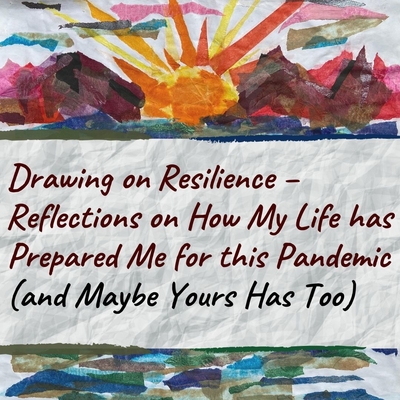
Drawing on Resilience – Reflections on How My Life has Prepared Me for this Pandemic (and Maybe Yours Has Too)
April 20, 2020 | Celeste Schexnaydre
As someone who lives with a compromised immune system, I have been inside for at least a week longer than the general public. I moved my art therapy private practice inside my home and onto a HIPAA compliant platform immediately after having a cough and wanting to protect my clients as well as myself. This wasn’t a surprise to many of them as some are aware of my health concerns. I have had to re-imagine my career frequently due to these health limitations.

Connecting and Reassessing during Coronavirus, a Message from AATA President Dr. Carlock-Russo
April 7, 2020 | Margaret Carlock-Russo
As I sit here wondering what I want to share with you about the current state of affairs in the U.S. and the world, I can’t help but think about the connectedness that has grown from this horrible situation. Like most of you, I am staying home, communicating virtually with colleagues, students, clients, family, and friends. It’s a humbling experience.
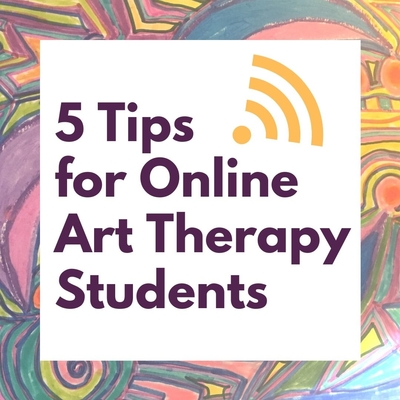
From an Online Art Therapy Grad Student, Here are 5 Tips for Making the Transition to Virtual
April 6, 2020 | Trica Zeyher
When I found out that my internship site was going to be transitioning to telehealth therapy from face-to-face services due to coronavirus social distancing, I felt prepared from my online graduate experiences. Edinboro University’s online art therapy program provided me with practice to succeed even in these challenging times. Here are my top 5 tips of how to succeed in an online art therapy master’s program.

Virtual Intimacy in Therapy and in Life
April 6, 2020 | Trica Zeyher
As we enter week-four of our new reality of social distancing, everything has changed. Even though my art therapy master’s program at Edinboro University is already online, I have experienced upheavals in my own life and witnessed similar chaos in the lives of my clients, educators, friends and family. Already knowing the benefits of virtual intimacy in therapy from my own online studies and experience as a client, I would like to share what I have been thinking about during this coronavirus social distancing.
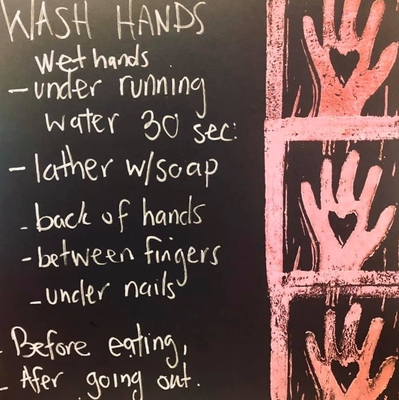
Affirmations for Coping during Coronavirus Times
March 30, 2020 | Gioia Chilton
What I do matters for my community
I wash my hands, for myself and others
We can get through this together
Teamwork makes the dream work
Together we protect each other
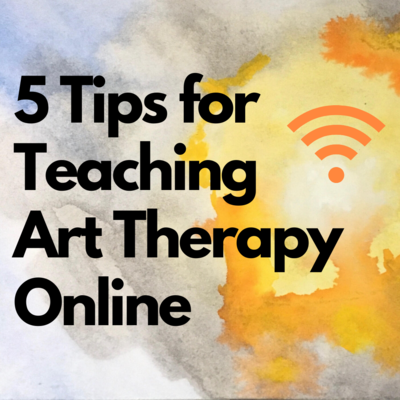
To My Colleagues that are Changing Everything, Here are 5 Tips for Effectively Teaching Art Therapy Online
March 20, 2020 | Carolyn Brown Treadon
To say the last week has been challenging is an understatement! As we all quickly learn to navigate challenges in our daily lives in response to COVID-19, many are also working to get courses and clients transitioned to an online platform. With the help of my colleagues at Edinboro University, where we offer an art therapy master’s program that can be completed 100 percent online, I put this resource together to offer some advice to colleagues in other programs navigating this transition.
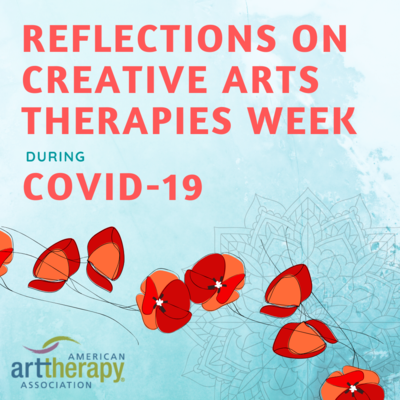
Reflections on Creative Arts Therapies Week during COVID-19
March 20, 2020 | Gretchen Miller
Every year we celebrate Creative Arts Therapies Week with the National Coalition of Creative Arts Therapies (NCCATA). Along with our colleagues not only in art therapy but also in music therapy, dance/movement therapy, drama therapy, poetry therapy, and psychodrama, we take time to bring awareness to the power of our professions and to our roles in the mental health field.

Antiracist Approach to Art Therapy: Re-examining Core Concepts
February 26, 2020 | Jordan S. Potash
As a White art therapist who has worked cross-racially for almost my entire career, I am regularly reminded that there are always racial-social-political influences that enter into the art therapy relationship. My current work in an open art therapy studio at a drop-in center for runaway and homeless adolescents and young adults, most of whom are Black, reinforces three strategies for art therapists for understanding and responding to power differentials.
